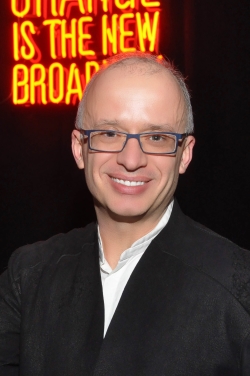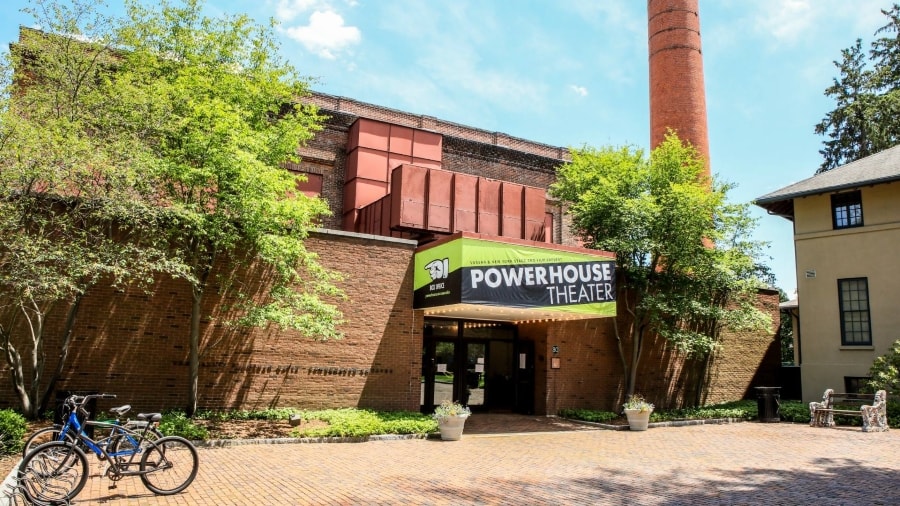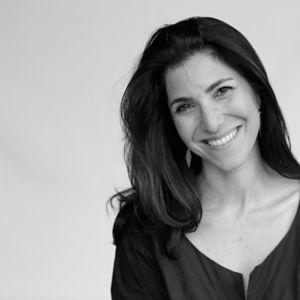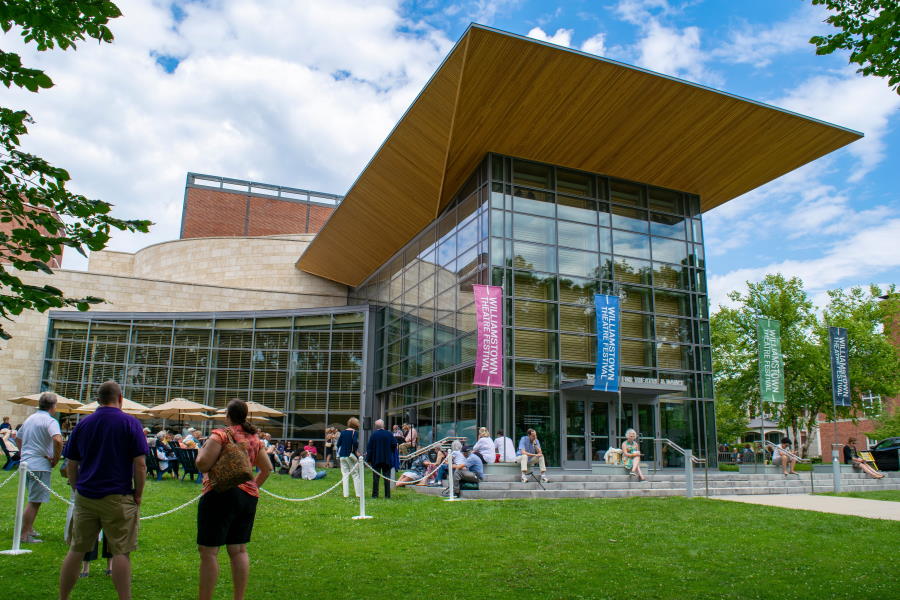2020 seemed to break the American theatre wide open, gutting budgets and salary lines while claiming space for new forms and underrepresented voices. And so the most vulnerable members of the theatre economy’s labor force (read: the young, the inexperienced, and the contingent) finally got their day in court, with a chorus of voices, including mine, calling for higher wages, better working conditions and sunnier employment outcomes for entry-level workers and the fleet of interns who largely function as such. This outcry seemed to pay off: In response, many theatre companies put their exploitative intern programs on hiatus, promising to rethink and ultimately reorient these points of entry into the industry towards one mutually beneficial for theatre company and intern.
Two years on, several of these programs remain in limbo, suggesting that systemic change is easier dreamed than done. But other artistic directors are tackling the big questions head on and introducing new programs, offering glimpses into what might be. In conversation with these artistic directors, one trend seems abundantly clear: more equitable access to better opportunities for fewer people.
The Hangar Theatre in Ithaca, N.Y.’s had a fellowship program for actors that was tuition-based. Now the theatre pays participants; whereas the tuition-based model saw a cohort of around 22 young people each summer, the salaried model will accommodate about 15.

Meanwhile, at New York Stage and Film (a partner of Vassar’s Powerhouse Theatre), artistic director Chris Burney, has made dramatic changes after he witnessed the company’s pre-pandemic work culture. “I was shocked,” said Burney, who began at the job in spring 2019. “People were working seven days a week for two months straight. It’s not right, even if it’s fun. It’s not right.” Burney brought all positions at the festival into compliance with state minimum wage laws, which drastically raised intern stipends, and paid for overtime while discouraging workweeks that necessitated it. The company now employs about half of the interns it used to (though not all of the other half disappeared into the ether—some have been moved into staff positions).
And Williamstown Theatre Festival, which as recently as 2019 paid its artistic director more than a quarter of a million dollars a year while employing several dozen unpaid interns and low-paid staff members, has entirely pivoted its operational model. It suspended its internship program and replaced it with smaller, more focused opportunities: in 2021, the Early Career BIPOC Theatre Makers Program, and in 2022, a similar program open to pre-professional theatre artists. Both programs pay stipends and offer room and board, and this years’ program emphasizes a well-rounded theatre education: It will operate “within various departments so participants get a more holistic sense of how theatre is made,” offered interim artistic director Jenny Gersten. Gersten seems genuinely interested in providing hands-on experiences that are of primary benefit to the intern; the new program, she said, “doesn’t require their labor but does allow them to get hands-on experience. And the program combines time in an experiential setting as well as classroom time.”

These companies are leading the charge and walking the walk. But faced with the financial precarity inherent in the industry and exacerbated by the pandemic, it seems unlikely that most other theatre companies that put tuition-based, unpaid, or underpaid entry-level programs on hold will reopen their doors to new crops of well-paid young people. And many of those companies whose programs do revamp and reopen, like WTF and Hangar, plan to sustain their new models with smaller cohorts. All of this adds up to fewer entry-level opportunities in the theatre industry.
Is that a bad thing?
Not necessarily. Unpaid and underpaid entry-level programs came under fire in 2020 in large part because of their size. At Williamstown, for example, legions of interns were recruited each summer to build sets, but the sheer number of them ensured that precious few were actually able to build meaningful professional connections or get hired for pay at the festival in future years. Laurie Baskin, director of advocacy at Theatre Communications Group (the publisher of American Theatre), sees a possible win-win for intern programs of smaller size: “Maybe it’s fewer, but it might be more impactful for the young people and the organization too.”
Indeed, increased industry-wide competitiveness for entry-level positions could be a kind of gentle culling tool, sparing aspiring theatre artists with a small chance of hacking it professionally from spending their formative years engaged in drudgery for employers all too happy to take advantage of their eagerness. A less reachable first rung on the ladder would also be more reflective of the industry’s overall job market, and could thus mean a more aligned theatre economy.

Historically, more limited access to entry-level opportunities has been bad news for people of color, and poor or working-class theatre workers of all backgrounds. On the other hand, better-paid jobs and a new focus on inclusion may ultimately give talented members of historically excluded and underrepresented groups more entry points into the profession, not fewer. When Hangar Theatre was still tuition-based, artistic leadership tried to solve problems of access by “offering more and more [scholarship] money, which helps, but at the same time, that requires the privilege of being somewhere for the summer for eight weeks without income,” said Shirley Serotsky, Hangar’s artistic director. “And that in and of itself is quite exclusive.” Now that Hangar’s paid program covers travel and housing in addition to a salary, erasing economic barriers to participation, Serotsky reported that this year’s applicant pool “does appear to be a group coming from a diverse range of backgrounds—schools and geographic areas included—which is great.”
At New York Stage and Film, the application process itself has been democratized. Instead of one or two higher-ups reading applications, the company has “invited last year’s artists and staff to participate in the first round of going through applications, and of course they’re paid for each application they look at,” said Burney. He observed that this new process has “shifted the way people have access to our company” and “provided a deeper sense of belonging to the company” for its existing members.
Innovation notwithstanding, none of these programs are safely and permanently in place.
“We’re still trying to come out of the hit we took financially during the pandemic,” one theatre professional who wished to remain anonymous told me. “We’re still operating at reduced staff and trying to adjust priorities and align with our new mission.”
Even the companies who have already opened new programs face similar uncertainties down the road. Hangar Theatre, like hundreds of other institutions, found itself “incredibly supported by money that came through the CARES Act in various ways—government money that had never been experienced before in our lifetime, not since the 1930s, really,” said Serotsky, who then wondered, “What happens when the money runs out?” Buoyed by recent conversations, she said she remains optimistic that donors will help Hangar make this a permanent operational shift: “We’ve gone to donors we have pre-existing relationships with, and many have seen this as the place that they really want their funding to go toward. We’ve enlisted some new donors and new people who are particularly interested in the effort.”
NY Stage and Film’s Burney likewise can’t say where the money will come from down the line, but believes that where there’s a will, there’s a way. “Whenever I was asked the question, ‘How do you plan to sustain this? Are you going to do fewer projects?’ I was like, ‘We’re just going to raise more money. We have to raise more money. And if we can’t raise more money then sure, we’ll scale back productions.’ ”

Precarious funding isn’t the only barrier in the way of a better future. Companies that went from charging tuition to simply not paying interns still haven’t solved their labor inequities; nor have companies that now pay, but still less than minimum wage. There’s also the as-yet-undetermined number of companies that will continue with business as usual, quietly avoiding introspection, as if this reckoning had never taken place. Burney noted that privileged college grads and theatre companies eager for fresh, unpaid workers will always have a friend in each other. “There will always be a segment of people who will continue to traffic and trade in free labor for the possibility of greater work opportunities,” he said. “And there will be people who can afford that.”
But the conversation surrounding entry-level jobs has permanently changed, and real, on-the-ground progress is being made as a result. Serotsky believes that the move to a paid model is a “huge first step. The impact on the budget is huge, and of course we would like to pay people more.” WTF’s Gersten noted the enormity of the task ahead: “These are big boats to turn aroun. To do that with a big institution, it’s really challenging.” But for her, the task is ultimately a joyous one. “It’s so deeply challenging and so incredible at the same time,” she effused.
Indeed, the artistic leaders I spoke to see the here and now as both an unprecedentedly uncertain time and an incredibly exciting one. Gersten recalled that “10 years ago, five years ago, we were all at TCG conferences or at various other working groups at different theatre institutions going, ‘I don’t know, the model feels kind of broken,’ or, ‘I don’t know, how is this sustainable?’ We were asking sustainability questions long before 2020.” Now, she said, “We get to ask those questions and really have to answer them, and really engage in those very hard questions. I’m super excited by that.”

A large part of this hope and excitement for the future rests on faith in the new, more diverse generation of movers and shakers currently filling entry-level positions. All of the people I spoke to reported being inspired by young people in general, and this generation in particular. For Gersten, young blood remains vital for the organization not only operationally, but also energetically.
Chris Burney reflected that “this once-a-century moment allowed us to actually reframe everything we did, and how we did it, and how we paid people, and how can we pay people equitably? How can we change access to the company?”
“A major strand of the Williamstown Theatre Festival is to create opportunities for people who want to start a career in theatre,” she said. “If the Williamstown Theatre Festival didn’t have that, I’m not sure we would feel like we were complete as an institution.”
And while the American theatre’s current artistic leaders don’t have easy answers for all the questions posed of them, Serotsky said she hopes that perhaps new people in the field “will continue to be creative and forward-thinking about these questions in ways that are even more successful than my generation has managed.” Burney said he believes that the new generation will effect change outside of the question-and-answer paradigm: “They’re making different demands. And I really mean that. It’s not that they’re asking different questions. They’re just really now saying, ‘Okay, now make the change.’ And I think that’s the positive force that’s going to carry us forward”.
Rosie Brownlow-Calkin (she/her) is an Equity actor and assistant professor of theatre at the University of Nevada, Reno.


